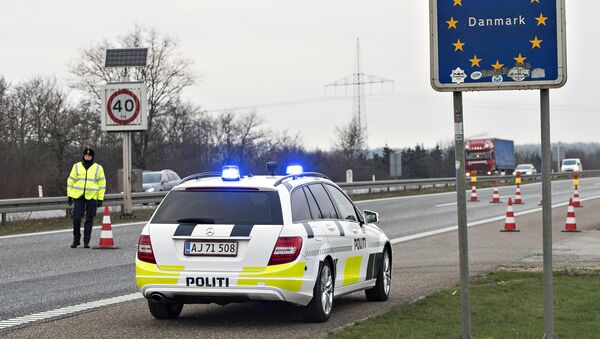Anders Vistisen, who chairs DF's faction in the EU Parliament, advocated that this model could be at least partially applied to Denmark, the Danish newspaper Politiken reported.
"We in DF are very excited about what we saw in Hungary. The model is pretty much the same as the one we propose to introduce between Denmark and Germany," Anders Vistisen told Politiken. According to Vistisen, the border would be enhanced with a three-meter border fence with barbed wire, motion sensors and surveillance cameras.
"Should the Germans have a problem with it — if they say that the refugees come from Greece or Austria — then simply let the Germans obtain control of their own borders," Vistisen said.
According to Politiken, the 174-kilometer border fence between Hungary and Serbia set Hungary's state coffers back $602 million. A similar fence at the 68-kilometer Danish-German border is expected to cost Denmark $226 million.
DF, which has been rising in popularity since it was established in 1995, is currently Denmark's second-largest party with 21.1 percent of the votes, but is not part of the coalition government.
DF spokesman Martin Henriksen called the comparison "absurd" and "insane" and called for the Conservatives to eject Dyremose from their party. Dyremose subsequently admitted that he was "a little regretful" of the comparison, yet maintained that it was "difficult not to make."
A poster for DF's 2007 election campaign notoriously featured a hand-drawn image of Islamic prophet Muhammad with caption "Freedom of speech is Danish, censorship is not." The Conservative Party, however, itself landed in hot water in 2015 for its campaign slogan "Stop Nazi Islamism."
Bir #İslamofobi örneği de#Danimarka'dan!MuhafazakarHalkPartisi ilanı:Stop Nazi İslam isme/Nazi İslamcılığını durdur pic.twitter.com/Zk74qhpQCL
— Dr. Hasan Doğan حسن (@hasandogan) 15 апреля 2015 г.
Never miss a story again — sign up to our Telegram channel and we'll keep you up to speed!






